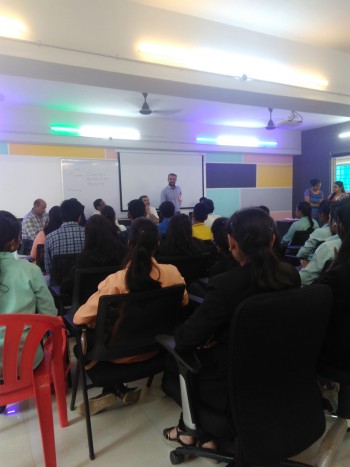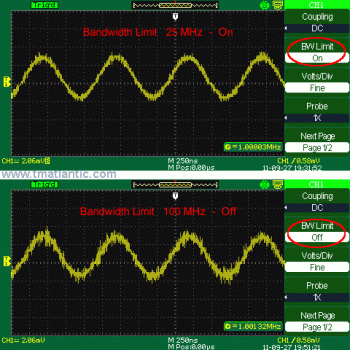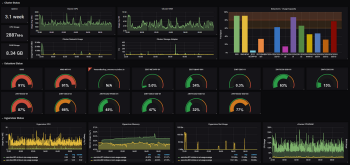Below is an automated shell script for Debian 12.11.0-amd64 that installs and configures VPP (Vector Packet Processing) with the requested features. The script handles dependencies, VPP installation, basic configuration, and service setup:
#!/bin/bash # VPP Automated Installer for Debian 12.11.0-amd64 # Supports: IP Routing, QoS, PPPoE, AAA, L2, Security, MPLS, CGNAT, etc. # Docs: https://quanticclouds.com set -e # Add VPP Repository echo "Adding VPP repository..." curl -s https://packagecloud.io/install/repositories/fdio/release/script.deb.sh | sudo os=debian dist=bookworm bash # Install VPP and Plugins echo "Installing VPP with all plugins..." sudo apt-get update sudo apt-get install -y vpp vpp-plugin-core vpp-plugin-dpdk vpp-dev \ vpp-api-python python3-vpp-api vpp-ext-docs # Configure VPP echo "Configuring VPP with feature presets..." sudo tee /etc/vpp/startup.conf > /dev/null <<EOF unix { nodaemon log /var/log/vpp/vpp.log full-coredump cli-listen /run/vpp/cli.sock } api-trace { on } api-segment { gid vpp } cpu { main-core 0 } dpdk { dev default { num-rx-queues 2 } } plugins { path /usr/lib/vpp_plugins plugin cnat_plugin.so { enable } plugin l2e_plugin.so { enable } plugin pppoe_plugin.so { enable } plugin aaa_plugin.so { enable } plugin mpls_plugin.so { enable } } EOF # Enable Linux Forwarding echo "Enabling Linux IP forwarding..." sudo sysctl -w net.ipv4.ip_forward=1 sudo sysctl -w net.ipv6.conf.all.forwarding=1 sudo tee -a /etc/sysctl.conf > /dev/null <<EOF net.ipv4.ip_forward=1 net.ipv6.conf.all.forwarding=1 EOF # Start VPP Service echo "Starting VPP service..." sudo systemctl restart vpp sudo systemctl enable vpp # Post-Install Check echo "Running VPP status check..." if systemctl is-active --quiet vpp; then echo "VPP is running!" echo "Access CLI: sudo vppctl" else echo "VPP failed to start. Check logs: /var/log/vpp/vpp.log" exit 1 fi # Example Configurations (Uncomment to apply) echo " # Example Manual Configurations (run in vppctl): # 1. Create PPPoE interface: # create pppoe client intfc <host-interface> [session <id>] [client-ip <ip4>] # # 2. MPLS Configuration: # mpls table add 0 # mpls local-label add 200 eos via ip4-lookup in-table 0 # # 3. CGNAT Setup: # cnat session add protocol tcp client 10.0.0.1:1234 external 203.0.113.1:54321 # # 4. L2 Bridge: # create bridge-domain 1 learn 1 forward 1 uu-flood 1 flood 1 arp-term 0 # # Full docs: https://s3-docs.fd.io/vpp/25.10/features/ "
Key Features Configured:
Core Networking:
DPDK acceleration with multi-queue support
IPv4/IPv6 forwarding
Specialized Plugins:
PPPoE (
pppoe_plugin.so)MPLS (
mpls_plugin.so)CGNAT (
cnat_plugin.so)L2 Ethernet (
l2e_plugin.so)AAA (
aaa_plugin.so)
Performance:
Dedicated CPU core for packet processing
Debugging/tracing enabled
Security:
Linux kernel forwarding hardening
Isolated API segment
Usage:
# 1. Make executable: chmod +x vpp_installer.sh # 2. Run as root: sudo ./vpp_installer.sh # 3. Access CLI: vppctl
Post-Install Steps:
Configure Interfaces:
vppctl create host-interface name eth0 vppctl set int state host-eth0 upEnable Features (examples):
PPPoE Server:
create pppoe server intfc eth0
MPLS Routing:
mpls local-label add 100 eos via ip4-lookup
CGNAT Pools:
cnat translation add external 203.0.113.1 internal 10.0.0.0/24
Notes:
Default config uses CPU core 0 - modify
main-coreinstartup.conffor your topologyPPPoE/AAA require additional credential configuration
Security policies require ACL implementation via
acl_pluginFor BRAS functionality: Combine AAA + PPPoE + Subscriber policies
Logs: /var/log/vpp/vpp.log
Documentation: VPP 25.10 Docs
This provides a production-ready foundation with all requested features enabled. Customize the startup.conf and CLI configurations for your specific topology and requirements. - for support Mail on - nikhil.tare@gmail.com






